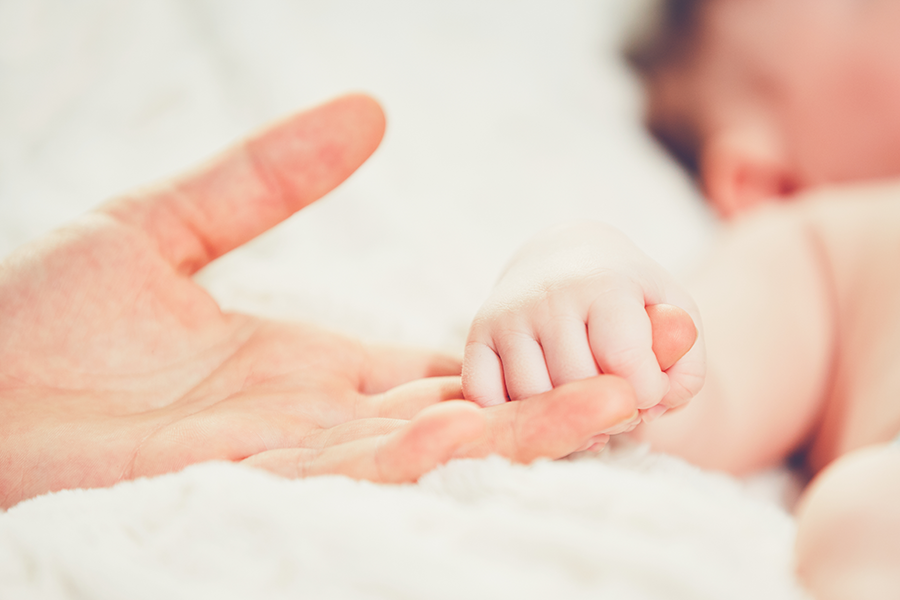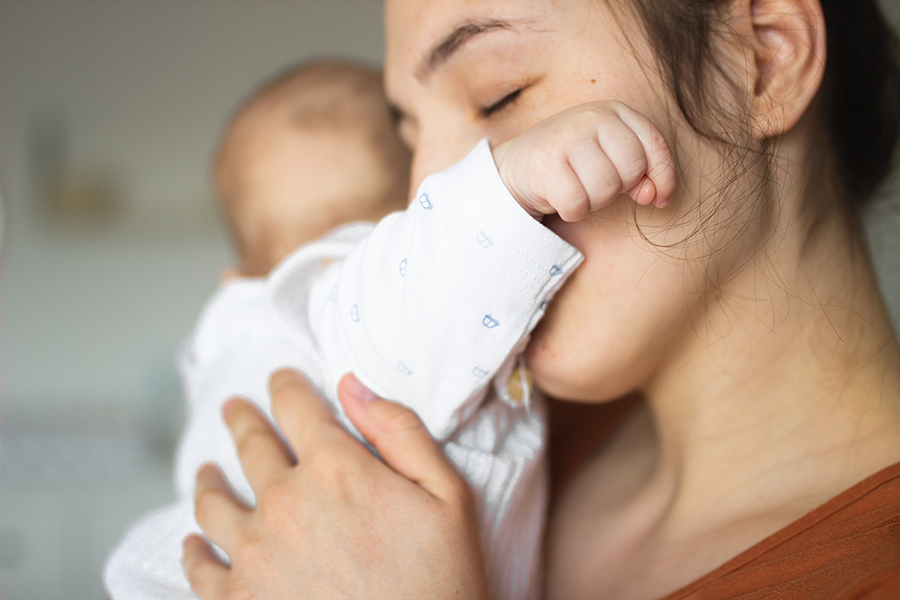Around the world, new-borns cry an average of 2 hours a day. The first few weeks of a new-born’s life are called the fourth trimester. During this time, babies are still adjusting to life outside the womb. They may cry more than usual, sleep less than usual, and eat more than usual.
Here are some tips to keep your newborn safe and comfortable:
- support their heads when carrying them
- keep them away from bright lights and loud noises
- make sure they are sleeping on their backs to prevent SIDS
- use a firm mattress
- and avoid letting them sleep on their stomachs
What you need to know about your new-born
- New-borns cry for many reasons. They may be hungry, wet, cold, or just need attention. Crying is a baby’s way of communicating.
- Most new-borns sleep a total of 16 to 18 hours a day, but they sleep in short spurts.
- Newborns usually wake up every 2 to 3 hours to eat.
- A newborn’s stomach is very small, so they can only eat a little bit at a time.
- Babies should be breastfed or given formula every 2 to 3 hours.
- Newborns have small tummies, so they need to eat often.
- They also have tiny bladders, so they will wet their diapers often.
- Newborns have soft, delicate skin. Most newborns have some redness on their face from the journey through the birth canal. This redness usually goes away within a day or two.
- New-borns also have soft, downy hair called lanugo. Lanugo helps keep babies warm in the womb. Most of the lanugo will fall out before the baby is born. The rest will usually disappear within the first few weeks after birth.

How to Bond With Your Newborn
Many new parents worry about how to bond with their new-born. Will they feel an instant connection or need some time to adjust? The truth is, there is no single answer to this question. Some parents feel an immediate bond with their baby, while others take a little longer.
Here are a few things you can do to help develop a bond with your newborn:
- Spend time skin-to-skin. One of the best things you can do to bond with your baby is to spend time skin-to-skin. This means holding your naked baby against your bare chest. Skin-to-skin contact has been shown to help babies feel calm and secure, and it can also help you feel more bonded to your little one.
- Breastfeed. If you’re able to breastfeed, this can also help you bond with your baby. Breastfeeding releases the hormone oxytocin, which is sometimes called the “”cuddle hormone”” because it helps promote feelings of love and bonding.
- Talk to your baby. Even though your baby can’t understand your words yet, talking to them can help you feel more connected to them. Try telling them about your day or singing them songs.
- Hold your baby often. Simply holding your baby can help you feel more bonded to them. If you’re able to, try carrying your baby in a baby carrier or sling so you can have them close while you go about your day.
- Respond to their cues. One of the best things you can do for your baby is to respond to their cues. When they cry, try to figure out what they need. Are they hungry, wet, or tired? Responding to their needs will help them feel loved and secure, and it will also help you feel more connected to them.
Bonding with your newborn can take some time, but it will happen. Just spend as much time as you can with your little one and enjoy this special time together!
Would you like to know more about parenting? Go to our next article!
Would you like to know more about your pregnancy? Visit our Mumgazine YouTube channel!


Yonovipapkbet.. Hmm, the ‘VIP’ tag is quite inviting! Is the app sleek and user-friendly? And are we talking serious high-roller action? Details: yonovipapkbet
Just logged in through 969betcomlogin, no issues at all. Nice and simple – exactly what you want when you’re trying to get your bets in. Thumbs up! 969betcomlogin
Yo! 0055betapp is where it’s at for a quick flutter. Easy to use, and I had a decent win last week. Check it out! 0055betapp
Just tried out q68bet last night. Initial impressions? Good. The signup process was quick and painless, and they’ve got a pretty decent selection of games. I’m going to keep playing for a bit and see what happens, but so far so good.